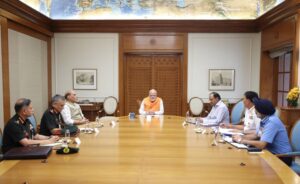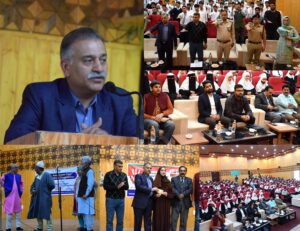Crisis deepens in PoJK over missing persons, sparks protests
Muzaffarabad [PoJK], June 22 (ANI): In recent developments, Pakistan-occupied Jammu and Kashmir has been gripped by a growing crisis involving missing persons, sparking widespread concern and protests among residents.
The issue has gained significant attention due to the alleged involvement of security forces and the perceived lack of transparency in investigations.
The recent kidnapping of Khwaja Khursheed Ahmed, a resident of PoJK, has triggered significant protests in the region. On Wednesday, activists and student leaders organised sit-ins and demonstrations across various districts of the area, calling for the immediate release of Ahmed and other political activists without any conditions.
Student leaders further cautioned that if their demands were not met by the authorities, they would launch a prolonged march from Kotli to Muzaffarabad.
Recently, the 38-year-old poet Ahmed Farhad, who belongs to the Bagh district of PoJK, was reportedly abducted in May.
The Islamabad High Court (IHC) was later informed that Farhad was in the custody of Dhirkot police in PoJK and subsequently, Farhad was recovered 15 days after disappearing. Farhad is well-known for openly criticising both the influential establishment and military of Pakistan
Over the past few months, the number of reported missing persons in PoJK has steadily increased, alarming local communities and human rights organisations.
The families of the missing individuals have been vocal in their demands for answers and accountability.
Many families accuse the security forces of being responsible for the disappearances, alleging arbitrary detentions and enforced disappearances without legal recourse.
These claims have further fueled public outrage and calls for justice. The frustration over the missing persons issue has spilled onto the streets, with protests becoming a common sight across major towns in PoJK.
The local government in PoJK has faced criticism for its handling of the crisis, with accusations of inadequate investigation and reluctance to confront security forces implicated in the disappearances. Calls for an independent inquiry have intensified amid growing mistrust in official investigations.
The missing persons crisis has not only strained trust between the residents of PoJk and security forces but has also highlighted broader concerns regarding civil liberties and human rights in the region. As the protests continue and pressure mounts on authorities, the resolution of these cases remains a critical issue for the affected families and the wider community.






